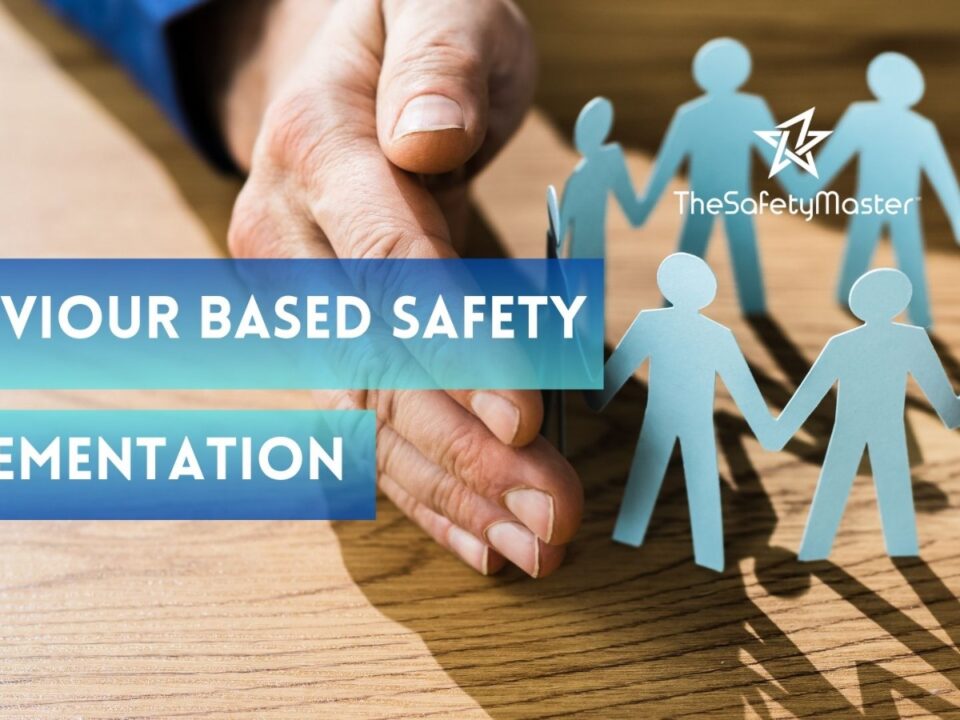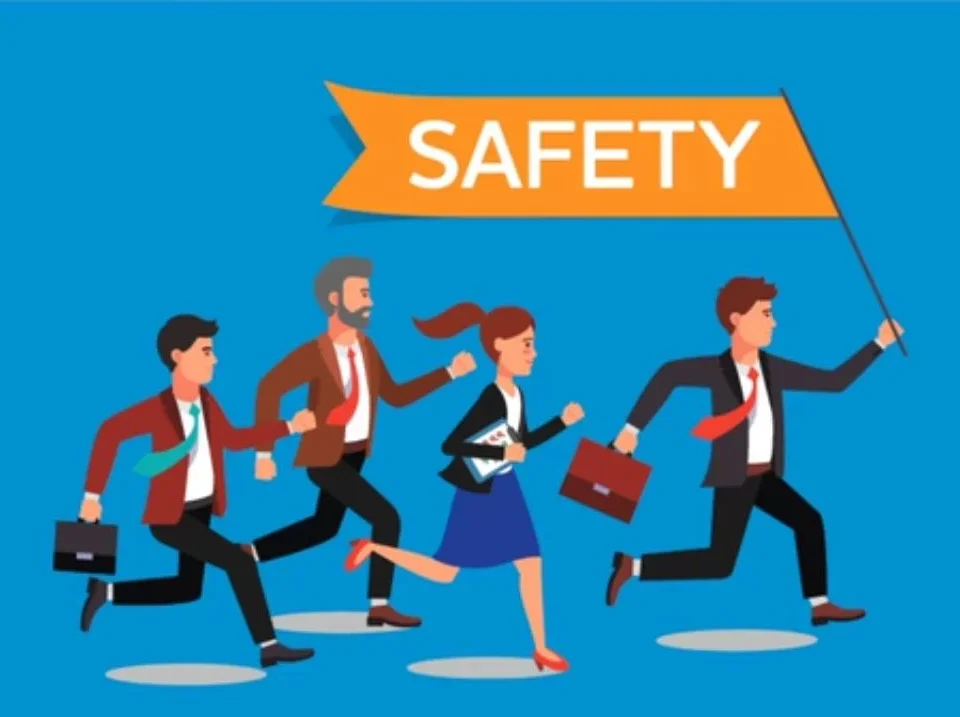Behavior-Based Safety: 4 Key Concepts and Benefits

How our behavior-based safety methodology benefits your organization
June 7, 2021
Introduction to Hazard Identification and Risk Analysis- TheSafetyMaster
July 22, 2021Behavior-Based Safety (BBS) principles can be employed to prevent hazards and create safe work environments. BBS has grown from an idea in the Industrial Age that is beginning to emerge in the Connected Workplace as a way of managing people in order to steer them toward safe behaviors that benefit them, their teams, their company, and the society at large. Employing BBS, employers can create workplaces where employees are inspired to find innovative ways to solve problems and produce great results.
Behavior-Based Safety is an approach to working on a project that originated in manufacturing with the goal of creating a safer workplace. The idea behind Behavior-Based Safety is that there is a direct correlation between job stress, frustration, and the number of incidents that occur. Behavior-based safety (BBS) is an approach to workplace safety that relies on analyzing patterns of safe and unsafe behavior. This approach differs radically from other ideas about the nature of workplace accidents, such as human error or system failures, which focus primarily on mistakes people make or equipment failures.

Creating an effective Behavior-Based Safety (BBS) Program
Depending upon which efforts one cites, BBS programs have been in existence for as long as thirty to forty years. Many of these attempts, however, resulted in little or no measurable benefit. Frequently these projects failed because BBS was considered a stand-alone program, rather than an integral component of the overall safety management process. In addition, the lack of a standard methodology has limited its success. This has produced a great deal of confusion about what really constitutes a Behavior-Based Safety Program (BBS).
Most companies today are focused on creating a culture of respect and safety in the workplace. Having a Culture of Safety is an absolute necessity to achieve success in today’s business climate. It is just as important to have effective Behavior-Based Safety Programs in order for your core values to actually be materialized throughout the company.
Need of Behavior-Based Safety (BBS)
Safety is a necessary consideration for both employers and employees. The former ensures that the latter can work in safe and healthy conditions, while the latter ensures that it can be done without undue risks to life and limb. this makes safety an important quality in the workplace. Some may think that common sense should be enough to keep employees safe but there are several cases to prove that it is not always possible to exercise your senses all the time.
Safety is a very broad term that encompasses several different areas and serves different purposes. Safety has always been of paramount importance especially in the industrial sector. It encompasses any action or activity that prevents injury of workers or compromise their health without compromising on the organization’s efforts to achieve its goals.
Behavior-Based Safety (BBS) is a reason that it’s becoming increasingly important for all industries globally to take note of like the old style of running an organization with complete focus on improving operational performance while forgetting to take care of its people, is slowly changing into one that focuses on such aspects as an increase in employee engagement and loyalty, better job satisfaction, teamwork, culture change initiatives, etc. The business environment today has seen the emergence of diversified dimensions in the manufacturing business particularly due to the infinite presence of social media and technological advancements.
Advantages of Behavior-Based Safety (BBS)
In the Occupational work environment, behavior-based safety (BBS) is used as a method in which employees are involved in their work activities. Behavior-based safety basically describes the behavior of employees on the job. It is looking at when accidents happen and what causes them to happen. BBS is also concerned with the modification and improvement of unsafe behaviors of employees. So, in order to minimize or reduce injuries, it would be great if all employees at the workplace will behave properly according to instructions, etc. In a word, behavior-based can be described as how people act on the job and what causes them to act that way.
Human behavior in the workplace is important to understand because it can determine how safe or unsafe the environment is. Behavior-based safety focuses on individuals’ actions that affect the workplace. BBS has numerous advantages over other safety techniques. BBS contributes to a safe environment by reducing injuries and rework, improving company image, increasing production, and creating an organizational culture of personal responsibility.
Behavior-based safety implementation
Safety has been one of the most talked-about topics in the past few years. With all the different stories we hear about each year, it’s no wonder people are scared of their jobs. There have been many reports on how important safety is to an organization’s success but it’s not too often that they tell you how to implement behavior-based safety. So here is how to build a behavior-based safety system.
Behavior-based safety (BBS) implementation is imperative if one wants to achieve a successful plan for their workplace. A BBS can help improve organizational communication and increase productivity. Companies that implement a BBS have been shown to reduce recordable work-related injuries by 20%. It is very important to not only install the equipment but to enforce the safety policy that was created with the help of a BBS consultant or safety expert. It is also crucial to hire a strong BBS advisor who has experience implementing behavior-based safety programs. This will ensure that employees are encouraged to report hazards and unsafe behaviors, thus making them more comfortable talking about problems and solutions on the job.
Behavior-based safety implementation is the foundation for creating a safe workplace. Effective behavior-based safety implementation takes careful planning, investigation, and attention to detail. This starts with management and needs the buy-in of everyone. A common theme in a SAFETY program is the active participation of everyone from top to bottom. This includes leadership down to every level of your business. The people closest to an actual task are most impacted by unsafe work behaviors. They are also best suited to help ensure behaviors stay safe.
How we can help
- Online/Onsite safety training
- Safety Culture Survey
- Audit and Documentation
- Implementation
To know more details, please contact us at info@thesafetymaster.com or +91 7665231743.




